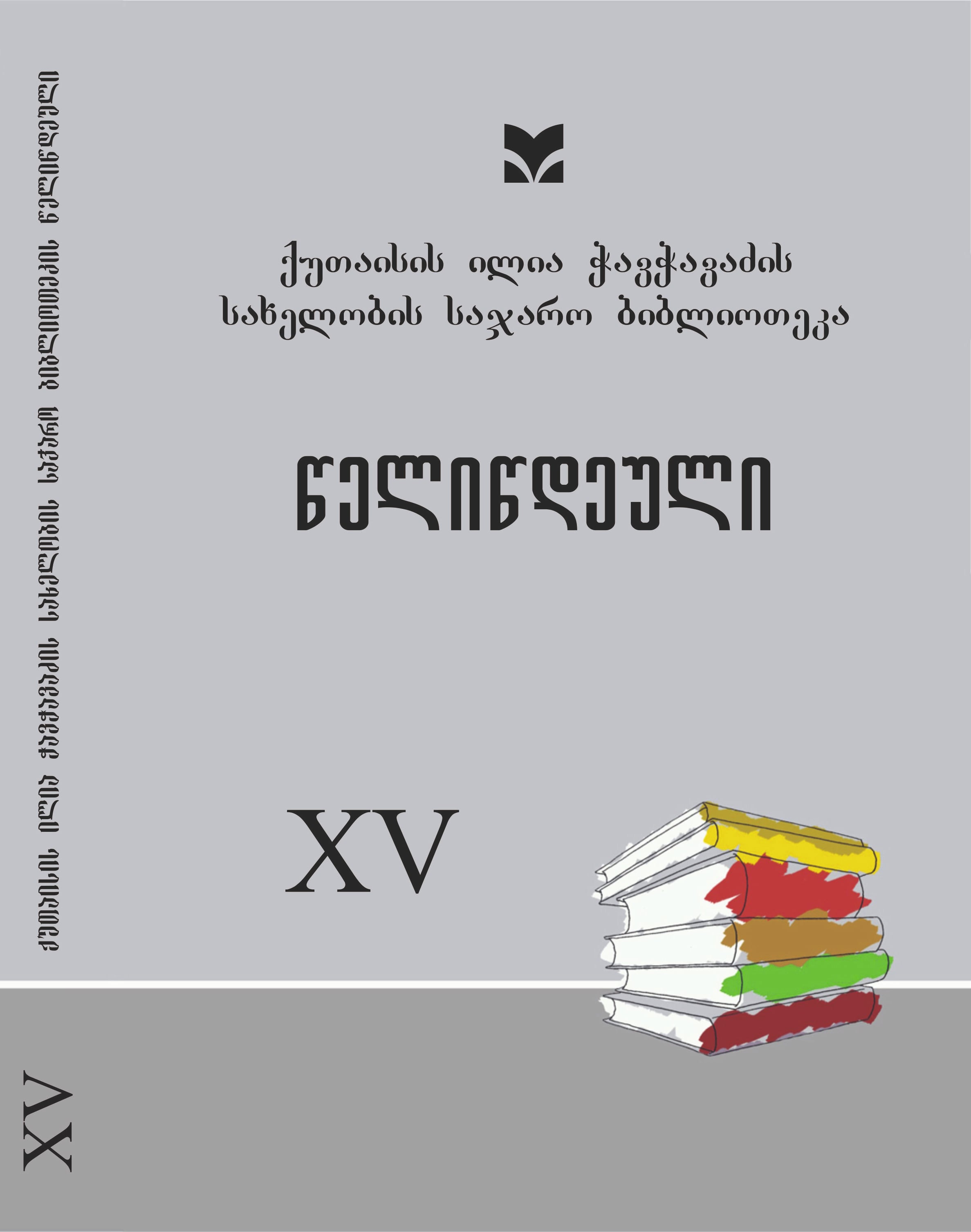On Imeretian Vocabulary (According to Okribian speech)
DOI:
https://doi.org/10.61491/yk.15.2023.8048Keywords:
Imeretian dialect, Okribian speech, dialect vocabularyAbstract
Studying the lexical richness of the literary language necessitates identifying and analyzing word forms found in dialects. Moreover, with time, certain words gradually fade from memory, despite being integral to our daily lives.
This article explores intriguing word forms documented in Imereti, specifically within the Orpiri community. The data was collected by researchers from ATSU Kartvelian Dialectology Scientific-Research Institute (now known as the Scientific Research Center of Kartvelology named after Tariel Putkaradze) during 1993- 1998. Analytical lexical units were compared with the explanatory dictionary of the Georgian language and various dialectological dictionaries.
Some of the analyzed words are absent from dictionaries, such as „atskhoki“ (small, tiny), „samportqala“ (three-headed, a kind of stick), „pakhutsa“ (heavily lame), „kurza-murza“ (various kinds of pebbles), and „tsachinkhalebuli“ (drunk). Some may be recorded in dictionaries but with different forms or meanings, like „gaghaghanebuli“ (warmed up, heated), „gadzgrialebuli“ (cleaned, arranged), „deiqurquna“ (sound of a bird), „kontlebi“ (small, equal to each other), and „morkolav“ (you plan, you circle).
We identified words confirmed in other dialects, though not mentioned in Imeretian dialectological dictionaries, such as «mozhglimo» (crushing, squashing), „nakle“ (faulty), „nakho“ (husks of ghomi, pods), «saraquda» (a tall person), and „qvintilofs“ (is sleepy, drowsy).
Foreign word forms were relatively scarce. Russian loanwords are notable, including „platuki“ (handkerchief) and „rediska“ (radish), and Turkish „qumusi“ (humus).




